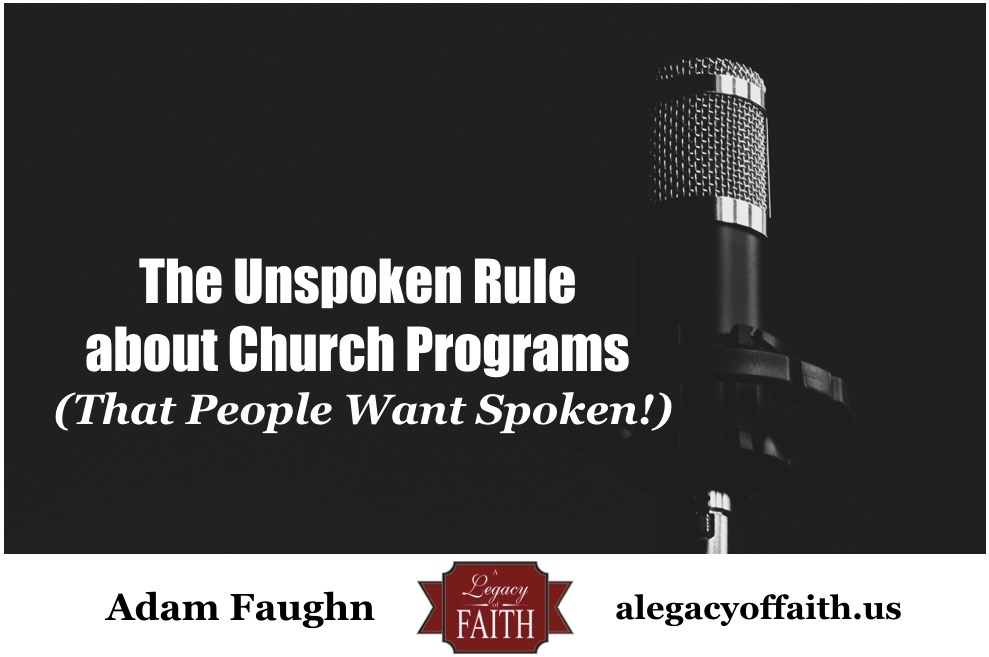The Unspoken Rule about Church Programs (That People Want Spoken!)

Call them “programs.” Call them “ministries.” Call them “opportunities to serve.”
Whatever you call them, every congregation has them. They are necessary to organize the work, so that people can serve in various capacities and use their talents to the glory of God under the oversight of the local eldership.
However, there is one problem with the myriad of programs and ministries that most congregations struggle with. Either they struggle in the planning phrase, or they struggle in the communication phase.
What is it?
People do not know which programs are for the whole congregation and which are for certain groups.
I can already hear the pushback. “We said this was just for those who were able to come.” Or, “We announced that this was for our senior saints.”
You may have, but here’s the deal: did you act like it?
In other words, you may have announced that this work night was just for those who could come, but when only a handful showed up, did you talk about how few came?
You may have announced that this event was for the senior saints, but when some of a certain age did not come, were you upset (even though you never defined what a “senior saint” was)?
Do you see?
Congregations need to be clear! There are certain events that should be, as much as possible, congregation-wide. And it should be clearly communicated that all members are expected to be present. Personally, I would advise that this not be every single event, but that there should be a few of these scattered throughout the year.
On the other hand, if an event is for a certain age group, or only for those who signed up, or for those who agreed to be on a ministry team, then encourage those people to come and make it clear that they are encouraged to come. And then? Do not hammer away at the whole congregation for not “supporting” some event! It wasn’t for everyone, after all.
But all this must be fleshed out ahead of time and then must be communicated clearly. In the planning stages of an event, ministry, or program, who is this really for? Is this a congregation-wide activity? If so, how are we going to make that known? Or, is this just for a certain group? If so, who? How are we going to make that clearly known?
And, once the event has happened, how are we going to evaluate? Are we going to remember who this was for and be consistent, or are we going to make it seem–after the fact–that everything is really for everyone?
Let’s just state the obvious: one of those is a good idea and the other is not!
To Receive Every Article from A Legacy of Faith through Email for Free, Click Here
AUTHOR: Adam Faughn


